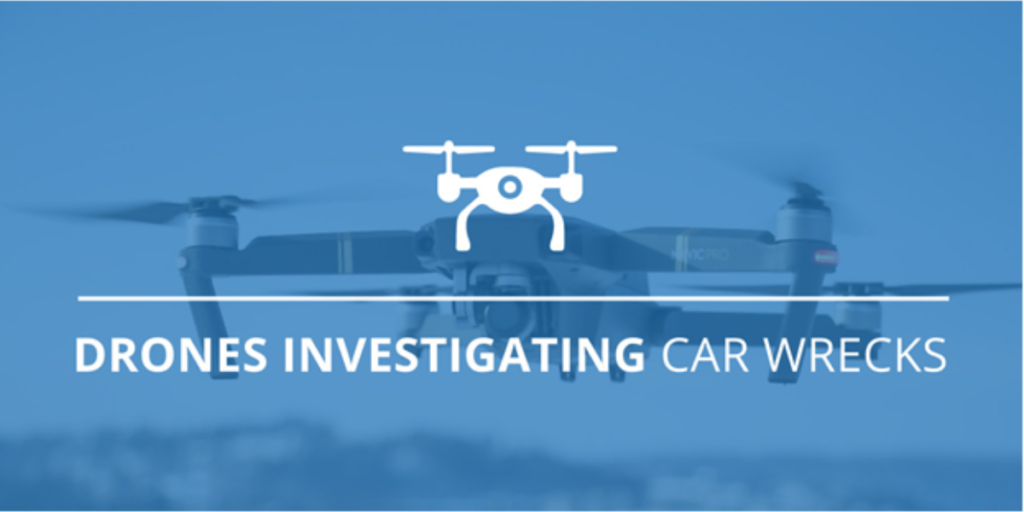
In recent years, drones have become increasingly accessible to the average individual. Indeed, there is a good chance that you know someone who regularly uses one to capture beautiful landscape videos or take aerial pictures at festivals. However, these remarkable machines have uses that stretch far beyond personal projects.
A growing number of police forces and other law enforcement agencies throughout the United States have begun using drones to help them capture birds-eye-view photographs of traffic accidents. In the past, police departments often took several hours to reconstruct crashes. This advanced technology allows them to complete the entire process in a much quicker fashion, with many accidents being reconstructed in a matter of minutes.
How does the drone-operated crash reconstruction process work?
Investigating a car wreck with a drone works in much the same way as any other drone-based project. First, a remote pilot launches the device from a nearby location and flies it to the site of the crash. Next, the drone begins to take a series of extremely high-definition photographs that capture the scene on the ground.
Once the photo-taking process has been completed, the images are then fed into a computer. From there, the pictures are stitched together to create a 3D model of the accident which law enforcement officers can use to determine exactly what happened.
Are there any privacy concerns surrounding the use of drones by police departments?
As you might expect, civil rights advocates and privacy activists have some worries about the use of drones by law enforcement. However, these concerns are mostly limited to drone usage for mass surveillance and group information collection. Put simply, they do not want the police to use their drones to spy on citizens as they go about their daily lives.
When it comes to drone usage for car wreck investigation, there is much less concern. Chad Marlow, of the American Civil Liberties Union in New York, states that “Filming a traffic accident overhead to get a better view, if it’s strictly limited to that purpose, is not the sort of thing that we would necessarily object to.” Indeed, the general consensus within the activist community seems to be that the practice provides a net benefit to society.
How does the use of drones in crash reconstruction benefit the general public?
As a member of the public, you will enjoy a number of benefits as a result of the widespread use of drones for accident investigation. These benefits include:
Fewer Road Closures
The process of investigating an accident in-person can take hours. During that time, the police usually need to close off a lane of traffic to complete their work. If the crash is especially large, the on-site law enforcement may need to close the road entirely for the duration of their investigation.
If the accident can be reviewed and reconstructed by a drone instead of an on-site team, it can be completed in a much timelier manner. Indeed, it is entirely possible that the street will be back up to full capacity within a matter of minutes – meaning you won’t need to take a lengthy detour to get around it.
More Accurate Accident Reports
If you are ever involved in a car, motorcycle accident, or truck accident on the road, your accident report will provide you with a full breakdown of exactly what happened and who was at fault. In the event that the crash was caused by the other party, you can then use the report as evidence if you choose to seek compensation for vehicle damage or personal injuries.
Because of their vantage point high in the sky, drones may be able to see elements of your crash that officers on the ground could not spot. This extra detail can then help the law enforcement team create a more accurate accident report, which may be a huge help during your fight for compensation.
Nevada’s Traffic Accident Experts
If you have been involved in a car wreck and would like the help of an experienced attorney to claim the compensation you deserve, the traffic accident experts here at Cap and Kudler can help. To set up an initial consultation with one of our attorneys, you can give us a call at (702) 878-8778 or reach out to us online.
